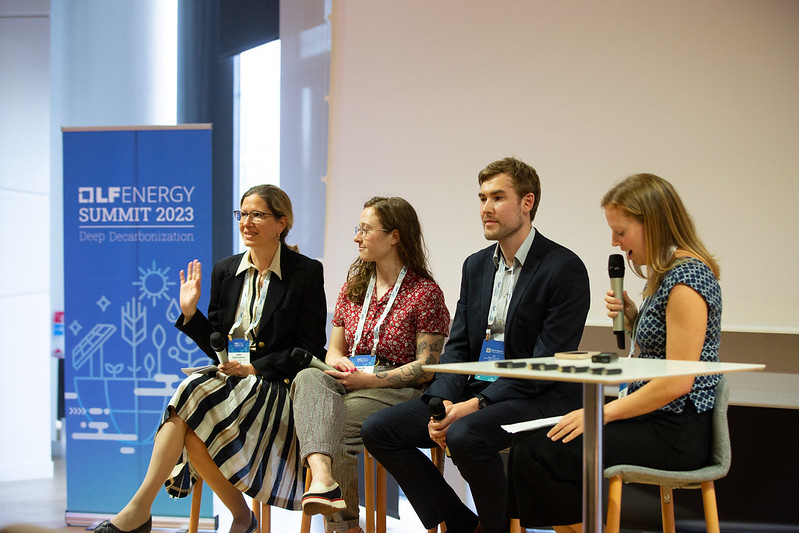LF Energy Summit Recap: Advancing Clean Energy: The Role of Technical Research
LF Energy Summit 2023 hosted a panel titled “Technical Research Fueling NextGen Actions,” featuring esteemed experts from Google, Technical University of Berlin, and Singularity Energy, moderated by Hallie Cramer of Google (video follows below). The panelists delved into crucial topics, including carbon accounting, grid flexibility, and next generation procurement, shedding light on the role of technical research in driving the clean energy revolution. Let’s explore the key takeaways from this insightful discussion.
Focusing on Decarbonization
Dr. Anna Radovanovic, a technical program manager at Google, emphasized the need to harness new technologies and innovative business models to support decarbonization efforts. Her research focused on delivering reliable, affordable, and clean electricity worldwide, making Google a thought leader in grid decarbonization. This underlines the importance of technological advancements in achieving clean energy goals.
Energy System Modeling for Transition
Galen Pease, a data scientist at Singularity Energy, presented her work on energy system models that address the challenges of the energy transition. Her research aimed to guide both public and private sector stakeholders in making better decisions in response to the variable nature of renewable energy sources. Energy modeling plays a critical role in optimizing space-time flexibility and ensuring affordable, safe, and secure energy systems.
The Power of Open Source Research
Iegor Riepin from the Technical University of Berlin emphasized the significance of open source research in the energy domain. Open collaboration and sharing of validated data, algorithms, and methods are essential for the growth of the energy research community. Open source practices facilitate faster innovation, better decision-making, and the development of tools for carbon-aware computing and emission reduction.
Iterative Research and Policy Influence
The panelists stressed the importance of iterative research, recognizing that findings may take longer than expected. They highlighted the value of continuous effort in understanding grid physics, power flow, and emission patterns. Furthermore, research insights should be integrated into policy development and industry tools to ensure real-world impact on carbon reduction goals.
Collaboration and Education
The panelists called for increased collaboration between research communities, policymakers, NGOs, and industry experts to collectively envision a sustainable energy future. Education sessions and forums were suggested as platforms to bridge gaps between different communities and foster a shared understanding of energy terminology and concepts.
From harnessing new technologies for grid decarbonization to energy system modeling, the experts on this panel demonstrated how research informs decision-making, shapes policies, and contributes to a greener world. The promotion of open source practices and iterative research highlighted the importance of collective efforts in advancing the clean energy revolution. Collaboration and education emerged as essential elements to unify the energy research community in its pursuit of a sustainable and carbon-aware future.
